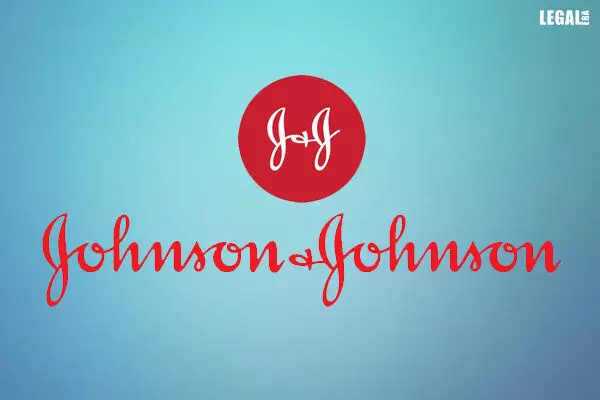- Home
- News
- Articles+
- Aerospace
- Agriculture
- Alternate Dispute Resolution
- Banking and Finance
- Bankruptcy
- Book Review
- Bribery & Corruption
- Commercial Litigation
- Competition Law
- Conference Reports
- Consumer Products
- Contract
- Corporate Governance
- Corporate Law
- Covid-19
- Cryptocurrency
- Cybersecurity
- Data Protection
- Defence
- Digital Economy
- E-commerce
- Employment Law
- Energy and Natural Resources
- Entertainment and Sports Law
- Environmental Law
- FDI
- Food and Beverage
- Health Care
- IBC Diaries
- Insurance Law
- Intellectual Property
- International Law
- Know the Law
- Labour Laws
- Litigation
- Litigation Funding
- Manufacturing
- Mergers & Acquisitions
- NFTs
- Privacy
- Private Equity
- Project Finance
- Real Estate
- Risk and Compliance
- Technology Media and Telecom
- Tributes
- Zoom In
- Take On Board
- In Focus
- Law & Policy and Regulation
- IP & Tech Era
- Viewpoint
- Arbitration & Mediation
- Tax
- Student Corner
- AI
- ESG
- Gaming
- Inclusion & Diversity
- Law Firms
- In-House
- Rankings
- E-Magazine
- Legal Era TV
- Events
- News
- Articles
- Aerospace
- Agriculture
- Alternate Dispute Resolution
- Banking and Finance
- Bankruptcy
- Book Review
- Bribery & Corruption
- Commercial Litigation
- Competition Law
- Conference Reports
- Consumer Products
- Contract
- Corporate Governance
- Corporate Law
- Covid-19
- Cryptocurrency
- Cybersecurity
- Data Protection
- Defence
- Digital Economy
- E-commerce
- Employment Law
- Energy and Natural Resources
- Entertainment and Sports Law
- Environmental Law
- FDI
- Food and Beverage
- Health Care
- IBC Diaries
- Insurance Law
- Intellectual Property
- International Law
- Know the Law
- Labour Laws
- Litigation
- Litigation Funding
- Manufacturing
- Mergers & Acquisitions
- NFTs
- Privacy
- Private Equity
- Project Finance
- Real Estate
- Risk and Compliance
- Technology Media and Telecom
- Tributes
- Zoom In
- Take On Board
- In Focus
- Law & Policy and Regulation
- IP & Tech Era
- Viewpoint
- Arbitration & Mediation
- Tax
- Student Corner
- AI
- ESG
- Gaming
- Inclusion & Diversity
- Law Firms
- In-House
- Rankings
- E-Magazine
- Legal Era TV
- Events
Bombay High Court allows Johnson and Johnson to manufacture baby powder

Bombay High Court allows Johnson and Johnson to manufacture baby powder
Finds it unreasonable to shut down the unit for non-compliance with standard quality for a particular batch
The Bombay High Court has set aside the orders of the Food and Drug Administration (FDA), Maharashtra, which restrained Johnson & Johnson Private Limited from manufacturing baby powder in its facility in Mumbai suburbs.
The bench of Justice GS Patel and Justice SG Dige allowed the sale of the product after noting Johnson's submission that out of the 11-12 samples of the baby powder tested by the FDA, only two were non-compliant with the concerned quality standards.
The court questioned, "Is it reasonable or proportionate on such a result that the product should be shut down in perpetuity and manufacturer of all other batches also? Would we want reason or proportionality to take such an action that the law permits on conforming batches?"
The court found it unreasonable how non-compliance with a particular batch and deviation from a standard quality would lead to shutting down all manufacturing.
"This seems to be extreme. Nothing on record shows that FDA consistently adopted such a stringent standard, with Johnson or other manufacturers. We believe that this kind of approach will result in a considerable amount of commercial chaos and wastefulness. It is hard to imagine how any manufacturer will function." the court remarked.
While noting the delay by FDA, the bench said, "We are unable to understand why for a sample collected in mid-2018, no test result came for over a year. The usual excuse for Covid-19 will not do because this was before anyone could imagine the pandemic. The delay ran till 2022."
Taking exception to the delay by the laboratories, the judges remarked, "We find it astonishing that a pH test takes two weeks. It cannot take weeks, months, or years. It is unreasonable, not only for the manufacturer, but also from the perspective of the consumers."
The bench thus allowed the company to sell its product and vacated the order staying the same.
Meanwhile, the company undertook to destroy the stock from the batch that had been tested after the court order.
While disposing of the petition, the bench set aside the two orders passed by the Joint Commissioner of the FDA restraining the company from selling the stock of the baby powder and recalling it from the market and the appellate order of the Minister of FDA upholding the commissioner's order.
Represented by Nishith Desai & Associates, Johnson & Johnson had challenged the cancellation of the cosmetic manufacturing license of its baby powder facility in Maharashtra.
The petition pointed out that FDA had issued an order on 15 September, cancelling the company's license, effective from 15 December 2022. But five days later, the commissioner reviewed the order and directed the company to stop the manufacture and sale of the baby powder with immediate effect.
Appearing on behalf of the Johnsons, Senior Advocate Ravi Kadam had requested the court to permit them to sell the accumulated stock.
While ordering re-testing of the samples and on perusal of the report, the court questioned the State why there had been a delay of over two years in passing an order cancelling the cosmetic manufacturing license of the company's baby powder.



